“Life’s greatest tragedy is to lose God and not to miss HIM.”--F.W. Norwood.
Conversion
Conversion to Judaism
Converting to Orthodox Judaism Is a Lot. Here's How 3 Women Did It.
BY MICHELLE HONIGPUBLISHED: AUG 7, 2018
GODONG//GETTY IMAGES
In the middle of a blizzard on the Upper East Side, Chaviva Gordon-Bennett dipped her feet into a ritual bath located in the basement of a building adjacent to her synagogue. A female attendant watched as she descended into the heated water, her terry cloth robe still tied around her waist. Three rabbis stood off to the side of the room, their backs to Gordon-Bennett as she dunked her head under water.
“Kosher!” the woman called out as she emerged.
The rabbis took this as their cue to leave. Gordon-Bennett disrobed, handed the soaked garment to the attendant, and dunked twice more.
MORE FROM ELLE
Gordon-Bennett was officially an Orthodox Jew. The ritual bath—known as a mikvah—marked the culmination of her religious conversion. It was a process that began years earlier, as a self-described “bible-belt, middle class, white Christian” at University of Nebraska taking a class on world religions. By senior year, Gordon-Bennett had converted to Reform Judaism. But after visiting an Orthodox synagogue for Passover two years later, she says, “I knew [Reform] wasn’t going to be enough for me.”
Dressed and dried after the mikvah, Gordon-Bennett met the Rabbis in the waiting room, still reeling from the gravity of what had just transpired. The Rabbis handed her a piece of candy—a reward and another test. Before eating it, she would need to say the specific blessing for candy, in Hebrew. (Orthodox Jews say a blessing over every food they eat.) “I was like, oh my god, I’m going to mess this up,” she recalls.
Converting to Orthodox Judaism is an intense and rigorous process. It involves intimate rituals, intimidating religious authorities, profound emotional transformation, and a fair amount of anxiety. It’s a process that has reportedly been undertaken by model Karlie Kloss in advance of her engagement last month to Josh Kushner, the venture capitalist and brother to White House advisor Jared Kushner. It’s a process Ivanka Trump underwent before marrying Jared. It’s also a deeply transformative process few people will tell you they regret.
View full post on Instagram
“It’s been such a great life decision for me,” Trump told Vogue in 2015. “I am very modern, but I’m also a very traditional person, and I think that’s an interesting juxtaposition in how I was raised as well. I really find that with Judaism, it creates an amazing blueprint for family connectivity.”
Jared and Ivanka are now famous for bringing Orthodoxy to the White House. The couple’s Friday night and Saturday day activities are closely tracked by the political press, as religious laws dictate that Orthodox Jews refrain from using cell phones (among other things) on Shabbat, the day of rest. To date, Karlie and Josh’s lifestyle has been less scrutinized, though fans may have noticed Karlie has stopped posting to Instagram on Saturdays.
It’s a deeply transformative process few people will tell you they regret.
The laws of Orthodox conversion are deceptively simple: ensure that a prospective convert is sincere in his or her desire to accept and follow all the laws of the Torah — the Hebrew bible — as interpreted by Orthodox Judaism. But because this is a subjective assessment, the application of the law varies among Rabbinical courts that oversee these conversions. As with most things, privileged converts are often spared some length, confusion and uncertainty the process can entail. But, in any case, the rules of conversion illustrate the seriousness and intensity of adherence to tradition within the Orthodox community. For Orthodox families like mine and the Kushners, marriage to a non-Jew—even a 6-year girlfriend like Karlie—is out of the question. Women and men who marry into the Orthodox Jewish faith are required to convert—and both genders follow an identical process. For any convert, it’s a spiritual, intense, and private process, one that involves hours of study, impromptu quizzes and, in some cases, a substantial amount of money.
Part 1: Find your Rabbis.
Men and women who want to convert to Orthodoxy often start by meeting with a local rabbi who introduces them to a member of a Beis Din, a rabbinical court consisting of three rabbis who are considered an authority on conversions. This trio of rabbis—like the ones who oversaw Gordon-Bennett’s dunking ritual—control the religious education of converts and are the gatekeepers of the mikvah date, which can take years to procure. Each rabbi has their own theological and political nuances, and the question of who can oversee conversions is taken seriously by Orthodox Jews and closely watched by the Supreme Rabbinical Court in Israel.
When Gordon-Bennett initially began her search for a Beis Din, she was opposed to what she terms “the system.” She was studying for a masters in Judaic studies at the time, and her Rabbi offered to find her an independent, customized council. But as she did more research, she ultimately decided to abide by the system, in the hopes it would help her kids be accepted by the community.
After applying with one of the world’s largest organizations of Orthodox Rabbis, she was called in for an interview. Once she and her boyfriend arrived, they were put in separate rooms and interrogated. The boyfriend was asked why he would date someone who wasn’t Jewish. Gordon-Bennett was asked why she would date a Jew when she wasn’t yet Jewish. In the end, the rabbis were impressed by her passion and knowledge of Judaism, and set her conversion date for the following month — a much quicker process than most converts enjoy.
Part 2: Do your learning.
For most potential converts, the next step is the learning material. Converts are required to learn all of Jewish law, Jewish history and Jewish philosophy. This can mean formal classes, one-on-one tutoring sessions, or weeks of self-study.
Orthodox convert Jen Lyons’ learning experience was practically academic. “[My conversion Rabbi] had me write a dissertation,” she says. “He sent me literally a book of questions and I had to answer them to the best of my ability.” Questions like, Why do you want to be Jewish? What happened with the diaspora, and can you explain that? “You could answer in a sentence or you could answer in three pages. I opted for the latter,” she says with a laugh. “So I had to write this giant novel, I think mine was over 100 pages.”
This is not to say the learning is tedious. “I liked the learning aspects of it,” Sara says Eidelshtein. Raised by a Jewish father and non-Jewish mother, Eidelshtein learned in high school that the Orthodox community would not consider her Jewish. (Orthodox Judaism maintains that Judaism is passed down through the mother, not the father.) Looking for a spiritual experience, she decided to pursue an Orthodox conversion. “I thought it was very intellectual,” she recalls. “It wasn’t just like voodoo, it was logical. And it spoke to my brain and made sense."
Part 3: Wait.
Next, the potential convert waits for the rabbinical court to approve their conversion proceedings and set a mikvah date. Approval means that the Beis Din believes you have completed your learning. Like grad school, the learning process is punctuated by in-person examinations that might resemble a thesis defense. But, unlike grad school, there is no set schedule for examination. After ten months of learning and waiting, Eidelshtein’s conversion was finally booked for the day after her high school graduation, which had fallen on a Saturday Shabbat. “I was like, if I convert before that, then I can’t go to my high school graduation,” says Eidelshtein.
Living an Orthodox Jewish lifestyle is hard. Rabbis repeatedly test converts to give them a way out.
For Lyons, who was raised Catholic, the wait was the worst part of the conversion process. She waited 6 months for Beis Din’s approval—not so bad, considering some converts have to wait years. “They kept pushing me off, which is really annoying,” says Lyons. “But nobody told me that they’re supposed to do that.”
Remember Charlotte York on Sex and the City, trying to convert for Harry and being turned away by Upper East Side rabbis? This was played as a joke, but it pointed to an integral aspect of the conversion process: The learning is drawn out in order to make sure converts are in it for real, and not just going through with the process to satisfy a traditionalist would-be husband or in-laws. Living an Orthodox Jewish lifestyle is hard. Rabbis repeatedly test converts to give them a way out.
Part 4: Get through your mikvah.
It’s tempting for converts to think that once the conversion is approved and the mikvah is scheduled, they’re in the clear. But last-minute interrogations may await. The day of Lyons’ conversion, her Beis Din demanded to know, again, why she wanted to convert and threatened to withhold her conversion paperwork for another year. After Lyons burst into tears, the rabbis allowed the conversion to proceed.
As Edelshtein sat in the waiting room before her mikvah, her Beis Din asked Eidelshtein a series of questions on Judaism and Jewish practice, which she expected. Then the Rabbis turned to her mother, interrogating her about why she had married Eidelshtein's father, knowing that their union would create non-Jewish children. “They made her feel really terrible and I felt so bad for bringing her,” says Eidelshtein.
Then there is the mikvah itself, which involves getting naked within proximity to the same religious authorities who were just quizzing you about philosophy — and who are not allowed to look.
Lyons arrived at her mikvah to find a sheet with a hole cut out hanging over the bath. The Rabbis explained that they would stand in the doorway so as to only see her head through the hole before she went underwater. After she submerged three times and turned to leave the water, the mikvah attendant held up Lyons’ towel, covering her own face to ensure she wouldn’t accidentally glance at Lyons’ body. “I thought that was cute,” says Lyons. “Not that I would've cared.”
Part 4.5: The money stuff.
At some point in this process, the question of money may arise. Although many people convert to Orthodox Judaism cost-free, others recall being surprised by fees and donations. Eidelshtein went through what she terms a “sketchy” process in which she paid $2,000 under the table for her conversion. Gordon-Bennett’s conversion was relatively cheap—she donated $180 to her training rabbi’s discretionary fund, and then paid a one-time $100 “mitzvah” fee to the Manhattan Beis Din—but she says she has heard of conversions costing upwards of $6,000.
Still, all the women I spoke to were overwhelmingly positive about the experience. Despite some discomfort and difficulties, Gordon-Bennett and Lyons have no regrets about their decision, and both are married with kids, raising their families in vibrant Orthodox communities. Eidelshtein is no longer a practicing religious Jew, but she has no regrets about going through with the process. “I still believe in all the Jewish values and all of the amazing concepts that are Jewish concepts that I learned and all the kabbalistic concepts,” she says. “It’s hard for me to let go of those things.”
The upside to all the work is the feeling of a weight off your shoulders once it’s done. “It was anticlimactic actually,” says Lyons. “It’s like passing final exams, It’s just a relief.”
Part 5: Plan the wedding.
Compared to conversion, wedding planning might feel easy. The learning doesn’t stop: Orthodox fiancées will learn, like all Orthodox women do before marriage, the laws of family purity, or Taharat HaMishpacha. But, family purity laws aside, planning an Orthodox wedding is like any typical American wedding, with a few key differences.
For one thing, the florist is important: they will play a key role in designing the chuppah. And there is an extra ceremony to prepare for called a bedeken, in which the bride greets guests from her seat on a chair, culminating in the groom dancing into the room escorted by friends and family, and placing the veil over the bride’s face. (As with other kinds of weddings, dance lessons are available.) As for party favors, there will probably be none—except for an elaborate, monogrammed prayerbook to say grace after the wedding dinner.
Welcome to the Conversion to Judaism Home Page, the web site of the Conversion to Judaism Resource Center. The Center provides information and advice to people who are considering converting to Judaism and to those who have converted. Members of the Advisory Board of the Conversion to Judaism Resource Center include:
Rabbi Celso Cukierkorn, Rabbi Bradley Shavit Artson, Rabbi Rachel Cowan, Dr. Nan Fink, Dr. David Gordis, Rabbi Irving Greenberg, Yossi Klein Halevi, Dr. Edward Hoffman, Dr. Walter Jacob, Professor Julius Lester, Patti Moskovitz, Rabbi Barbara Penzner, Lena Romanoff, Susan Weidman Schneider, Rabbi Harold Schulweis, Rabbi Alan Silverstein, Rabbi Neal Weinberg, Professor Zvi Zohar and Outreach Director Barbara Shair.
We recommend the new book by Rabbi Celso Cukierkorn for anyone who is interested in Judaism:
Secrets of Jewish Wealth Revealed!
by Rabbi Celso Cukierkorn
This site contains:
Should I Convert to Judaism?
How to Discuss Conversion to Judaism
Conversion: A Guide For Jewish Parents
The Conversion Process
How to Tell People About Your Conversion to Judaism
The Differences Between Judaism and Christianity
Learning Jewish Culture
Converting Infants and Children to Judaism: A Guide For Parents
Conversion to Judaism: Some Real Stories
Why the Jewish People Should Welcome Converts
Articles about jewish conversion
An Open Letter to Jews By Choice
The Movements in Judaism
A Guide For the Conversion to Judaism Activist
How to Organize a Congregational Keruv (Outreach) Committee
How to Publicize a Conversion to Judaism Class
A Guide to Jewish Books and Videos
A Brief List of Books About Conversion to Judaism
Links to Jewish sites
Conversion to Judaism website
- CONSIDERING JUDAISM
The conversion process begins when a person considers the possibility of becoming Jewish. The reasons why people become Jewish are varied. Many are involved in a romantic relationship with someone Jewish and wish to unite the family religiously. Others are on a spiritual search and learn about Judaism through such means as reading, hearing a lecture, attending a Jewish religious ceremony, and so on. Whatever the motivation, the first step in considering conversion is to explore Judaism. This early exploration might include discussing the subject with friends and family, taking out books and videos on Judaism, or just thinking about whether conversion is the right choice.
- FINDING A RABBI
If, after the initial consideration, a person wishes to explore conversion more fully, the next step is to find a rabbi. This part of the process can be difficult for several reasons. Obviously, individual rabbis differ. Some devote more time than others to conversion candidates. Some adhere to an ancient tradition of turning away a candidate three times to test the candidate’s sincerity. In general, though, rabbis are extremely dedicated people who are both intelligent and religiously sensitive. They are Judaism’s gatekeepers. They decide who can enter into Judaism. Given their central importance to a potential convert, it makes sense to visit several rabbis and several synagogues to look for a compatible match.
If you are looking for a rabbi, check with friends and family for advice. Contact a local board of rabbis or other Jewish group, or check a local telephone directory. You can also contact the movements directly. For contact information for the movements, click here.
A second problem is that rabbis belong to different groupings or movements. The four major movements are Conservative, Orthodox, Reconstructionist, and Reform Judaism. It is important for potential candidates to understand the differences among these movements and choose which movement is right for them.
When a person does see a rabbi, the rabbi can authoritatively answer questions about conversion. If the person has already decided to convert, the rabbi will probably ask a series of questions about that decision. Such questions might include some of these:
- Why do you want to convert?
- What is your religious background?
- What do you know about Judaism?
- Do you know the differences between Judaism and your birth religion?
- Were you pressured to convert?
- Are you willing to spend the necessary time studying to become Jewish?
- Are you willing to raise any children you might have as Jewish?
- Have you discussed this decision with your family?
- Do you have any questions about Judaism or conversion?
- LEARNING JUDAISM
A decision has been made to study Judaism, and a rabbi has agreed to oversee that studying. A person might not yet be fully sure that a conversion is right, but the initial steps of exploration will continue. Even those who don’t ultimately convert generally find that studying Judaism is both interesting and helpful in their making a final decision about conversion.
Converts study Judaism in a variety of ways. Some work directly with a rabbi, meeting regularly and fulfilling specific study assignments. Others attend formal Introduction to Judaism or conversion classes, often with their Jewish romantic partner. A typical course of study will include basic Jewish beliefs and religious practices, such as prayer services, the history of the Jewish people, the Jewish home, the Jewish holidays and life cycle, the Holocaust, and Israel, as well as other topics. The study of Hebrew is also included.
The period of study varies greatly. In general, the range is from six months to a year, although there are variations. Many Gentiles preparing to marry someone Jewish go through this process early so as to get married in a Jewish ceremony. A marriage between someone born Jewish and someone who becomes Jewish is a Jewish marriage, not an intermarriage. If this is a crucial issue, plan to begin study well before a wedding.
Usually during this study period, a rabbi will ask that the person begin practicing Judaism according to the understanding of the movement. This can be a worthwhile time to explore Judaism. For example, even if a person does not ultimately plan to keep kosher (observe Jewish ritual rules about food), it is valuable to explore the rules for keeping kosher during this period of study.
- THE RELIGIOUS COURT
The Religious Court, or Bet Din, most often consists of three people, at least one of whom must be a rabbi. Often it consists of three rabbis. The Bet Din officially oversees the formal conversion. Individual rabbis will provide guidance about how the Bet Din works. Because it takes place after learning, one part of the appearance will be to determine the Jewish knowledge of the conversion candidate. There might, for example be a question about the meaning of the Jewish Sabbath or about the Jewish belief in one God. These questions are not meant to trap candidates. Obviously, candidates are nervous during such questioning, but in almost all cases the questions are simply meant to assess the sincerity of the candidate and to make sure the conversion was entered into freely. Often an oath of allegiance to the Jewish people is made.
- CIRCUMCISION
The specific requirements for conversion and their order need to be discussed with a rabbi. One requirement for males who wish to be converted by an Orthodox or Conservative rabbi is circumcision, or brit milah. If a circumcision has already been performed, the Orthodox and Conservative movements require that a drop of blood be drawn as a symbolic circumcision. This ceremony is called Hatafat Dam Brit. The Reform and Reconstructionist movements generally do not require a circumcision as part of the conversion process.
- IMMERSION
Orthodox and Conservative rabbis require both male and female conversion candidates to immerse themselves in a ritual bath called a mikveh. This ceremony is called tevillah. Reform and Reconstructionist rabbis do not require the use of a mikveh, but some highly recommend it. The mikveh can be any body of natural water, though the term usually refers to a specific pool that is built for the purposes of ritual purification. The equipment used varies according to the mikveh. The immersion ceremony usually starts with cleaning the body as by a shower. The person is covered and the covering removed as the person enters the warm mikveh waters, which are usually about four feet deep. (When the ceremony is done in a public place such as a lake the candidate wears a loose-fitting garment). Blessings are recited and the person goes bends into the water. According to traditional Jewish law, three male witnesses must be present, although this rule has been reinterpreted so that, in some movements, Jewish females can be witnesses. When there are male witnesses and the candidate is female, the witnesses wait outside the mikveh room and are told by a female attendant that the immersion has been completed and the blessings recited.
- THE OFFERING
In ancient times, conversion candidates brought sacrifices or offerings to the Temple in Jerusalem. After the Temple was destroyed, this ceremony disappeared. Jewish law therefore does not require such an offering. However, some rabbis, especially among the Orthodox, mention it as an opportunity to engage in an act of donating money to the poor or another act of charity to make a symbolic offering. This step can voluntarily be added to the conversion process.
- CHOOSING A NAME
Again, particular conversion processes will vary. Frequently, after a Bet Din and the signing of an oath, a Hebrew name is chosen. This is then followed by a visit to a mikveh. At any rate, at some point, you will be asked to pick a Hebrew name. Some male converts choose the Hebrew name Avraham as their new Hebrew first name and some female candidates choose Sarah or Ruth. Since the use of Hebrew names includes mention of the parents’ Hebrew names, and the convert has no Jewish parents, it is common to add “ben Avraham Avinu,” or son of Abraham, our Father. Therefore if a male chooses the Hebrew name Avraham, that male’s full Hebrew name would be Avraham ben Avraham Avinu. For women, the addition is “bat Sarah Imenu,” daughter of Sarah, our Mother. The naming ceremony includes a blessing.
- THE PUBLIC CEREMONY
A public ceremony announcing the conversion is becoming more popular, especially among Reform Jews. This ceremony usually involves the convert standing in front of the congregation and giving a speech, most typically about the reasons for converting or the lessons learned through the conversion experience.
- A SPECIAL CASE: THE CONVERSION OF MINORS
Minors can be converted. In families with a non-Jewish mother and a Jewish father, the child is considered Jewish by the Reform movement if the child is brought up engaging in public acts of identification with Judaism. Orthodox and Conservative Judaism, however, do not regard such a child as legally Jewish. Parents of such children can if they wish have their children converted in infancy because the process is quite simple. While some would consider this a surrender to pressure especially from the Orthodox and refuse to do it, others see it as a way to get recognition of the child’s Jewishness by additional segments of the Jewish people. Reform rabbis often simply have a naming ceremony. Orthodox and Conservative rabbis require the mikveh for a female minor and a circumcision and mikveh for a male minor.
Orthodox Judaism
The Most Traditional Branch of Judaism
Updated on March 06, 2019
Orthodox Judaism believes that both the Written and Oral Torah are of divine origin, containing the exact words of God without any human influence.
Orthodox Jewish Practice
In terms of practice, Orthodox Jews strictly follow the Written Torah and the Oral Law as interpreted by the Medieval commentators (Rishonim) and codified in the Codices (Rabbi Joseph Karo's Shulhan Arukh and Rabbi Moshe Isserlis's Mapah).
From the time they get up in the morning until they go to bed at night, Orthodox Jews observe God's commandments concerning prayer, dress, food, sex, family relations, social behavior, the Sabbath day, holidays and more.
Orthodox Judaism as a Movement
The term "Orthodox" Judaism only emerged as a result of the growth of new branches of Judaism. Orthodox Judaism views itself as the continuation of the beliefs and practices of normative Judaism, as accepted by the Jewish nation at Mt. Sinai and codified in successive generations in an ongoing process that continues to this day.
It follows that Orthodox is not a unified movement with a single governing body, but rather many different movements that all strictly observe Judaism. While all orthodox movements are similar in their beliefs and observance, they differ in the details that are emphasized and in their attitudes toward modern culture and the State of Israel.
Modern Orthodox tend to be a bit more liberal and more Zionistic. Ultra-Orthodox, including Yeshivah movements and the Chasidic sect, tend to be the least open to change and the most critical of modern society.
Chasidism, founded in Europe by the Baal Shem Tov, believes that acts of kindness and prayer could be used to reach God, as opposed to the older view that one could only become a righteous Jew through rigorous learning.
The word Chasid describes a person who does chesed (good deeds for others). Chasidic Jews dress distinctively, live separately from modern society, and are dedicated to the strict observance of Jewish Law. Orthodox Judaism is the only movement that has preserved the mystical foundations of Jewish theology, referred to as Kabbalah.
What Orthodox Jews Believe
Rambam's 13 Principles of Faith are an excellent summary of the core beliefs of Orthodox Judaism.
- I believe with perfect faith that God is the Creator and Ruler of all things. He alone has made, does make, and will make all things.
- I believe with perfect faith that God is One. There is no unity that is in any way like His. He alone is our God. He was, He is, and He will be.
- I believe with perfect faith that God does not have a body. Physical concepts do not apply to Him. There is nothing whatsoever that resembles Him at all.
- I believe with perfect faith that God is first and last.
- I believe with perfect faith that it is only proper to pray to God. One may not pray to anyone or anything else.
- I believe with perfect faith that all the words of the prophets are true.
- I believe with perfect faith that the prophecy of Moses is absolutely true. He was the chief of all prophets, both before and after Him.
- I believe with perfect faith that the entire Torah that we now have is that which was given to Moses.
- I believe with perfect faith that this Torah will not be changed and that there will never be another given by God.
- I believe with perfect faith that God knows all of man's deeds and thoughts. It is thus written (Psalm 33:15), "He has molded every heart together, He understands what each one does."
- I believe with perfect faith that God rewards those who keep His commandments and punishes those who transgress Him.
- I believe with perfect faith in the coming of the Messiah. How long it takes, I will await His coming every day. 13. I believe with perfect faith that the dead will be brought back to life when God wills it to happen.
they don’t fully understand why John Adams, USA`s second president, said in 1798, “Our Constitution was made only for a moral and religious people. It is wholly inadequate to the government of any other.”


Make the right choice.Call or Whatsapp +254791035782.
Anyone can contact 24 hours a day, 365 days a year!
Address
GLOBALLY RECOGNIZED IN
Nairobi,NY,Addis Ababa,Lagos,Khartoum,Cairo,Niamey,Yaounde,
Kinshasa,Mogadishu,Moscow,TOKYO,Sao Paolo,
Budapest & Dubai Based.
Globally Recognised.
© 2020-2899 Abambika Afrika is a G-dly #G-dpolity AFRIKA ACTION NETWORK,G-d Judaism,G-d of GJAC League for the deepening of G-d conservatism movement in Africa & G-d of Judaism sharing ministry with messages of the MOST invioble MOST edifiable "greatest light".
"We are also pro-actively streghtening,supporting G-dly non-profits,G-dly research and education networks working in association with millions of Families & family groups in Africa."
https://classroom.synonym.com/the-basic-tenets-of-the-jewish-faith-12086766.html
The Basic Tenets of the Jewish Faith

JASON CRISTIANO RAMON

29 SEP 2017

CLASS
Judaism is the oldest of the three Abrahamic faiths that also include Christianity and Islam. Its most basic and fundamental beliefs arise from the Hebrew Bible, and in particular, from the Torah. The Torah is the religion's most sacred text and has been used by the religion for centuries. It contains 613 commandments, which in great detail, instruct Jews how to live. These commandments have been codified through Rambam's 13 Principles of the Jewish Faith.
1Monotheism
The most basic tenet of Judaism is its monotheistic faith: Jews only believe and worship a single God. Unlike Christians, Jews do not believe in a godhead divided into three beings, known as the Trinity, composed of God, Jesus Christ and the Holy Spirit. In the Judaic faith, God does not have a physical body, is transcendent, omnipotent, always just and accessible.
2Rambam's 13 Principles of Jewish Faith
Rabbi Moshe ben Maimon, also known as the Rambam, was an important intellectual figure of medieval Judaism and a distinguished codifier of the Torah law. Guided by the Torah, he compiled what he believed to be the most fundamental principles that should guide Jews. This is called the "Thirteen Principles of Jewish Faith." Today, they remain the most basic tenets that Jews strive to live by and include. These beliefs include: (1) an omnipresent God who is the creator of all things; (2) God's absolute unity; (3) God's non-corporeality; (4) that God is eternal; (5) to worship God and only one God; (6) that God uses prophecy to speak to men; (7) the importance of Moses' prophecy; (8) the divinity of the Torah; (9) the Torah's unchangeable nature; (10) God's providence; (11) God's just rewards and retributions; (12) the messianic era; and (13) the eventual resurrection of the dead.
3Authority of the Torah
The Torah -- the first part of the Hebrew Bible, which includes the the books of Genesis, Exodus, Leviticus, Numbers and Deuteronomy -- is the most significant and authoritative religious text in Judaism. As these first books detail sacred revelations to the Jewish people, for Jews, it also confirms God's commitment to Jews as the chosen people. The Torah also articulates the rules that should govern the life of Jews. Broadly, the word "Torah" can also be used to describe both Judaism's written and oral laws and can encompass all Jewish scripture and teachings.
4Importance of Life and Nation-state
Although Jews believe in "Sheol" -- a dark place where people go in the afterlife -- Judaism emphasizes life rather than the rewards or punishments after life. Death is often described in the language of finality in the Hebrew Bible: "So man lies down and does not rise. Until the heavens are no longer, he will not awake nor be roused out of his sleep." (Job 14:12) Even though Jews believe in an eventual resurrection after death and the messianic era, they also believe that death is incomprehensible and is the workings of God and God alone. What can be known, and what should be of concern, then, is how a person lives out God's laws.
REFERENCES
ABOUT THE AUTHOR
RELATED ARTICLES
What Is the Special Significance of the Torah to the...
Importance of Scripture in Judaism
What Is the Significance of the Quran?
Why Did God Forbid Moses to Cross the Jordan River?
What Are the Beliefs of Death & Afterlife for the Jewish...
Lutheran Beliefs Compared to Judaism
Jewish Belief on What Happens After Death
What Beliefs Are Shared Between Christianity & Judaism?
The Difference Between Bahai & Muslim Religion
What Is the Deity for Judaism, Christianity & Islam?
List of God's 10 Commandments
The Importance of Unity in Islam
How Do Jews Use the Torah Today?
What Do the Various Sacred Texts Contribute to Judaism?
Beliefs of Messianic Congregations
Five Major Beliefs of Hasidic Judaism
Ethics in Judaism, Christianity & Islam
Basic Muslim Beliefs About Eating
What Effects Did the Babylonian Exile Have on the Jewish...
Similarities of Islam With Other Religions
What Is the Special Significance of the Torah to the Jewish People?

JONATHAN VANKIN

CLASS
To call the Torah the most sacred text in Judaism is an understatement. Without Torah, there would be no Judaism. Through the Torah, a Jewish person is connected to God. The Torah existed before God created the world, tradition says. Over the years Jewish scholars have taken a more scientific approach, recognizing that the Torah was written by human beings over a period of time.
EXPLORE THIS ARTICLE
1More Than a Book, or Five Books
2Is the first five books
The simplest definition of The Torah is the first five books of the Tanakh, which is the Bible excluding the New Testament. But Torah can also refer to the Tanakh as a whole, or even to the entirety of Jewish law in both written form and in oral tradition. The Torah is a collection of stories, such as the Garden of Eden, Moses’ leading the Israelites out of Egypt and many others. Most importantly, the The Torah is the book of the law by which God commands the people of Israel to live.
4The first 10 are the most famous
The first 10 are the most famous, but the Torah contains 613 commandments, or miztvot, throughout the text. The 12th century Jewish philosopher Maimonides put together the master list. He found 248 affirmative commandments. The rest are all “don’ts.” The mitzvot cover every aspect of daily life: food, business, religion, sex, etc. They address cosmic questions, such as the unity of God, and mundane ones like grooming and sanitation. The laws are not meant to be followed to the letter, impossible in the modern world. The Torah itself tells readers to consult wise men on points that need more interpretation.
5Interpretations and Commentaries
6Recognizes an oral tradition
Judaism recognizes an oral tradition of laws and stories. This “Oral Torah” was also said to be imparted by God to Moses, but it was written down by the second century C.E. Rabbi Judah Hanasi called the book the Mishna, or “teaching.” Later, other rabbis felt at liberty to pitch in with their own interpretations. The compiled works of these rabbis, including the Mishna, over the ensuing three centuries became knows as the Talmud. This book and many subsequent commentaries provide guidance on how the Torah should be interpreted and its commandments followed.
7Ritual Importance of the Torah
8Is not only a sacred text
The Torah is not only a sacred text, it is a sacred object. Jews read a Torah portion weekly in synagogue. The reading uses a handwritten parchment Torah scroll, made from kosher animal skin. Even the Hebrew lettering has a significance, as it is written in lettering without vowel sounds and sung, not spoken. The parchment itself may not be touched, but is read with a Yad, a pointer shaped like a hand with the index finger raised. The reading ritual requires a high degree of skill and training. But the true significance of the Torah lies in its message, summarized by the first-century sage Rabbi Akiva in the single statement, “Love thy neighbor as thyself.”
ABOUT THE AUTHOR
RELATED ARTICLES
The Basic Tenets of the Jewish Faith
Synagogue's Ark Meaning for the Jewish People
Beliefs About Pork in the Middle East
Main Beliefs of the Jewish Religion
What Are the Beliefs of Death & Afterlife for the Jewish...
List of God's 10 Commandments
What Are Some of the Sacred Objects in Islam?
Beliefs of Messianic Congregations
Did Jews Practice Polygamy in the Time of Jesus?
The Meaning of Jewish Yarmulkes
What Is the Significance of the Quran?
About the Nuremberg Laws
What Beliefs Are Muhammad's Teachings Built Upon?
Lutheran Beliefs Compared to Judaism
Why Did God Forbid Moses to Cross the Jordan River?
Difference Between Mormons & Seventh-day Adventists
How to Teach the Book of Revelation to Teens
What Are the Holy Buildings in Judaism?
What Is the Book of Worship in Judaism?
Kissing Significance in the Jewish Torah
Importance of Scripture in Judaism

LINDA RAY

29 SEP 2017

CLASS
The central scripture in the Jewish faith is the Bible or Tanakh, also known as the Old Testament. These writings are composed of three main parts: The Torah (law), the Nevi'im (propehts), and the Kethuvim (writings). For Judaism, these scriptures are the source of communion with God and an insight into God's communication with the Jews. Scripture is also considered a practical guide for living a fulfilling and spiritual life.
1Ethics
In Judaism, the emphasis is not on a system of beliefs or the coherence of a doctrine. Rather, the focus is on the actions of an individual. The basis of a good life and a relationship with the Jewish God is through good deeds (mitzvoth). The scriptures function as a guide for ethical action. Although many of the archaic regulations outlined in the Jewish scripture have been abandoned or revised, the spirit of the scripture serves as a basis for ethical living. Studying and analyzing the scriptures, done alone and in groups, is the process through which a Jew comes to understand what God demands and what constitutes a good life.
2History
The scriptures also provide an important background for present day Jews. Whether or not the history is accurate or factual, part of the purpose of the scripture, as it is understood in Jewish life, is to give an account of the origins of the people of Israel. This history begins with Abraham, who is the first person to develop an intimate relationship with God. It follows the trials, journeys and growth of the tribe of Jews, of which Abraham is the father. God's promise to Abraham, that his offspring would become a great nation, is fulfilled throughout the scripture in a story that charts the emergence of the Jewish people and the nation of Israel.
3Identity
Through common history, ethics, values and beliefs about God, the Jewish scripture helps to give Jews a common identity and a sense of origin. This has become increasingly important as Jews have scattered all over the world and are not particularly tied to any one nation aside from Israel. Through the lessons and the practical laws and traditions outlined in the scripture, Jewish identity has been reinforced. The scripture can also serve as a guideline for certain traditions and rituals, such as holiday practices, which also serves to unite Jews all over the world and provide a sense of community, identity and belonging.
4Relationship With God
Judaism involves very strong elements of faith and personal relationships with God. Abraham serves as the first example of this intimate contact with God. The God of the Jewish scriptures is often angry and vengeful, but for those who listen, it is also a source of guidance from a dependable and loving power. The scriptures record the spiritual development of individuals such as Abraham and Moses through their relationship with the God of the Jews. One of the main functional purposes of the scripture is to help Jews develop a relationship with their God. This is done through studying the examples of the ancestors of the Jewish people.
https://www.jewishboston.com/topic/interfaith/

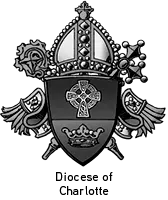

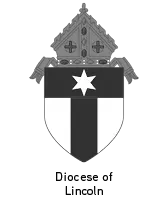
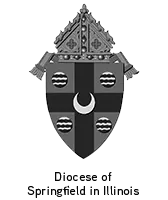
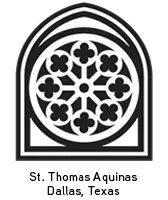
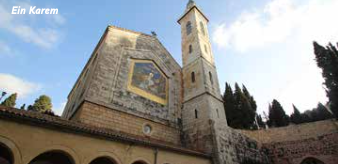
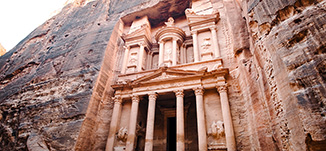


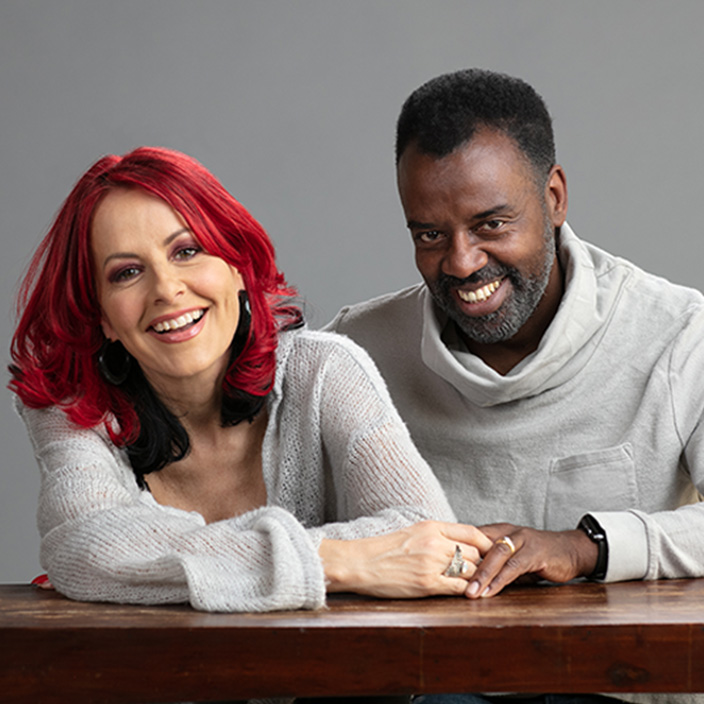








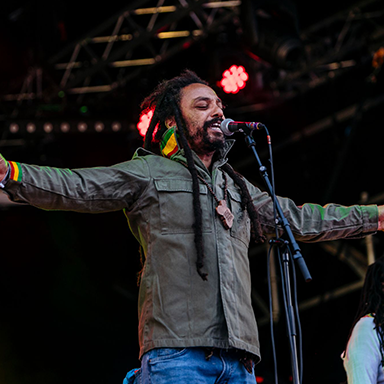





-1.png)






